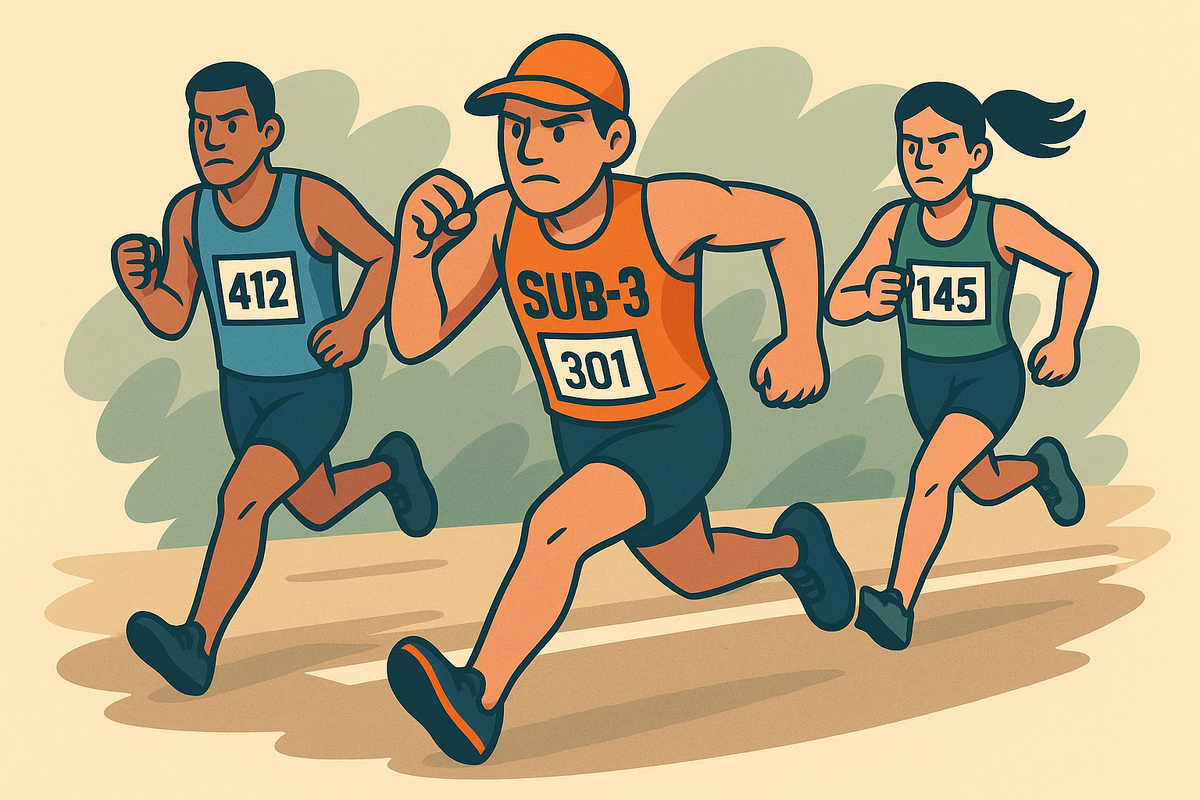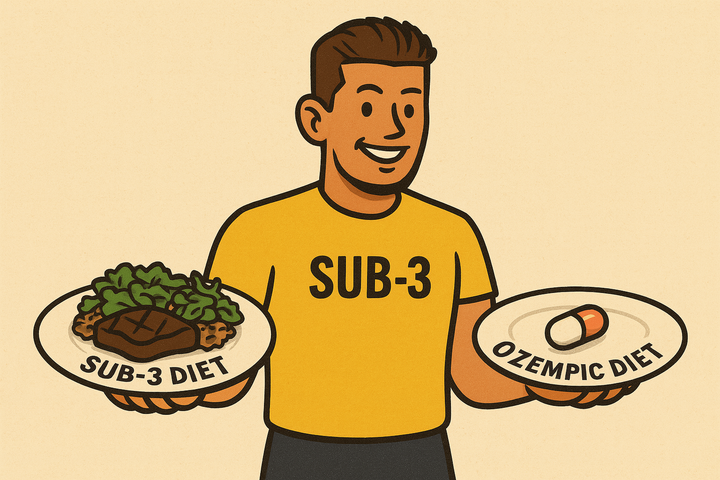Should sub-3 runners take creatine?
A long-time gym favourite, creatine is now finding a home in the world of distance running – and for good reason.

If you take one supplement, my coach told me early in our engagement, it’s creatine. He’d seen it work well across all of his endurance runners and suggested I look into it.
I confess I’d never really heard of creatine before then – only vaguely in relation to bodybuilding. After taking a look, I was also deterred by the fact that it causes weight gain during the “loading” phase at the start. And slightly put off by the idea that creatine supplementation temporarily reduces your body’s own production - though this is harmless and quickly reverses when you stop taking it. But I trusted my coach and started to load up (I've always taken it unflavoured by Peak Supps). It’s now been two years.
The main difference I've felt is in explosive energy during sprints and interval training. For about 15–20 seconds, I can go like a rocket, seemingly tapping into another energy source beyond the usual ones. It’s like a little turbo booster – and a nice thing to have in your racing toolbox. (I used to dislike sprint finishes, but now find I often win them.) I also think, although I’m not certain, that it seems to have made me a little sharper mentally – not more intelligent, but a slight upgrade to processing power. These things are very hard to pinpoint, but these combined are enough to keep me going with it.
Creatine is one of the most extensively studied supplements in sports science, and its primary benefit is well established: it helps the body rapidly regenerate ATP – your muscles’ most immediate energy source – during short bursts of high-intensity activity. That’s why it’s long been associated with powerlifters, sprinters and team-sport athletes. But recent research has started to show clear benefits for endurance athletes too – particularly in high-intensity intervals, hill repeats, surges and sprint finishes.
The IOC’s consensus statement lists creatine among just five supplements with strong evidence of benefit for elite athletes. In endurance sports, this may not translate into faster marathon times directly, but it can improve training quality – especially during VO2 max sessions and in the final stages of races where form and explosiveness matter. Some studies also suggest it may reduce inflammation and support recovery – though findings here are more mixed.
As you’d expect, there are a few caveats. The initial “loading phase” – typically 20g a day for 5–7 days – can cause rapid water retention as creatine draws fluid into muscle cells. Water weight gain is common, it’s intracellular and usually fades when dosing stops. Some runners skip this phase entirely and start with a low daily dose (3–5g), which is what I do. There’s also been concern that supplementing might reduce the body’s own creatine production – but the current evidence suggests this downregulation is minimal and reversible when supplementation stops.
Mental benefits? Those weren’t in my imagination either. A number of trials have shown creatine to improve working memory, processing speed and resilience to cognitive fatigue – especially in vegans or those with lower dietary intake (creatine is found mostly in red meat and fish).
So while creatine won’t help you cruise through a long run or directly shave minutes off your marathon time, it could sharpen the quality of your training, boost your top-end power and even help with recovery. And, given its low cost, wide availability and strong safety record, it’s no surprise that more and more sub-3 hopefuls are adding it to their daily routine.
Note: If you have kidney disease or are on nephrotoxic meds, seek medical advice before taking creatine.
Finding this useful? Help keep Sub-3 running — support us with a coffee.



